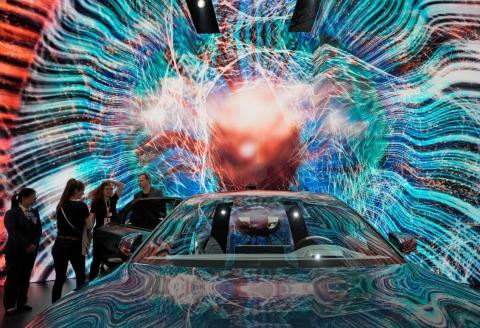Electric car makers race for supplies of lithium for batteries

Threatened by possible shortages of lithium for electric car batteries, automakers are racing to lock in supplies of the once-obscure "white gold" in a politically and environmentally fraught competition from China to Nevada to Chile.
General Motors and the parent company of China's BYD Auto went straight to the source and bought stakes in lithium miners, a rare step in an industry that relies on outside vendors for copper and other raw materials.
Others are investing in lithium refining or ventures to recycle the silvery-white metal from used batteries.
A shortfall in lithium supplies would be an obstacle for government and industry plans to ramp up sales to tens of millions of electric vehicles a year.
It is fueling political conflict over resources and complaints about the environmental cost of extracting them.
Ford Motor has signed contracts stretching up to 11 years into the future with lithium suppliers on two continents. Volkswagen and Honda are trying to reduce their need for freshly mined ore by forming recycling ventures.
Global lithium output is on track to triple this decade, but sales of electric SUVs, sports cars and sedans that rose 55 percent last year threaten to outrun that.
Each battery requires about eight kilograms of lithium, plus cobalt, nickel and other metals.
Adding to uncertainty, lithium has emerged as another conflict in strained U.S.-Chinese relations.
Beijing, Washington and other governments see metal supplies for electric vehicles as a strategic issue and are tightening controls on access.
Other governments including Indonesia, Chile and Zimbabwe are trying to maximize their return on deposits of lithium, cobalt and nickel by requiring miners to invest in...
- Log in to post comments










